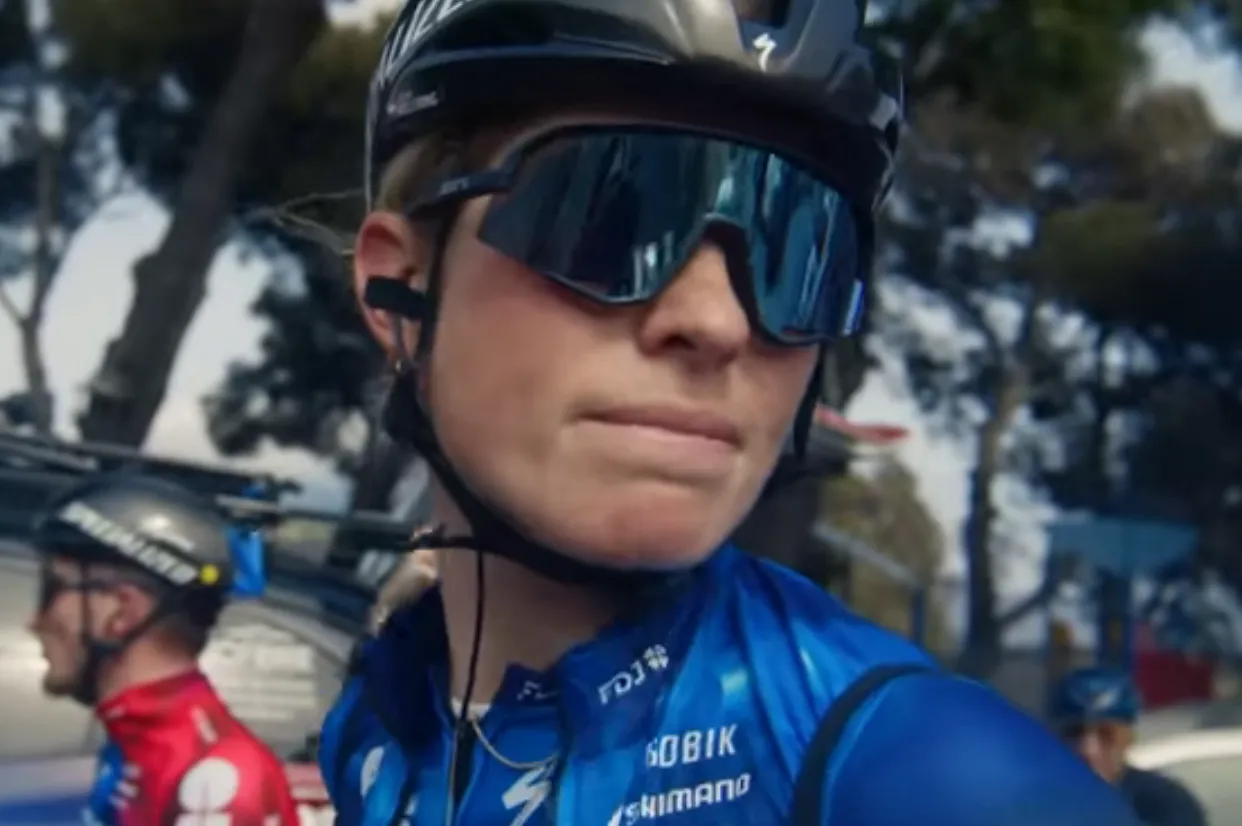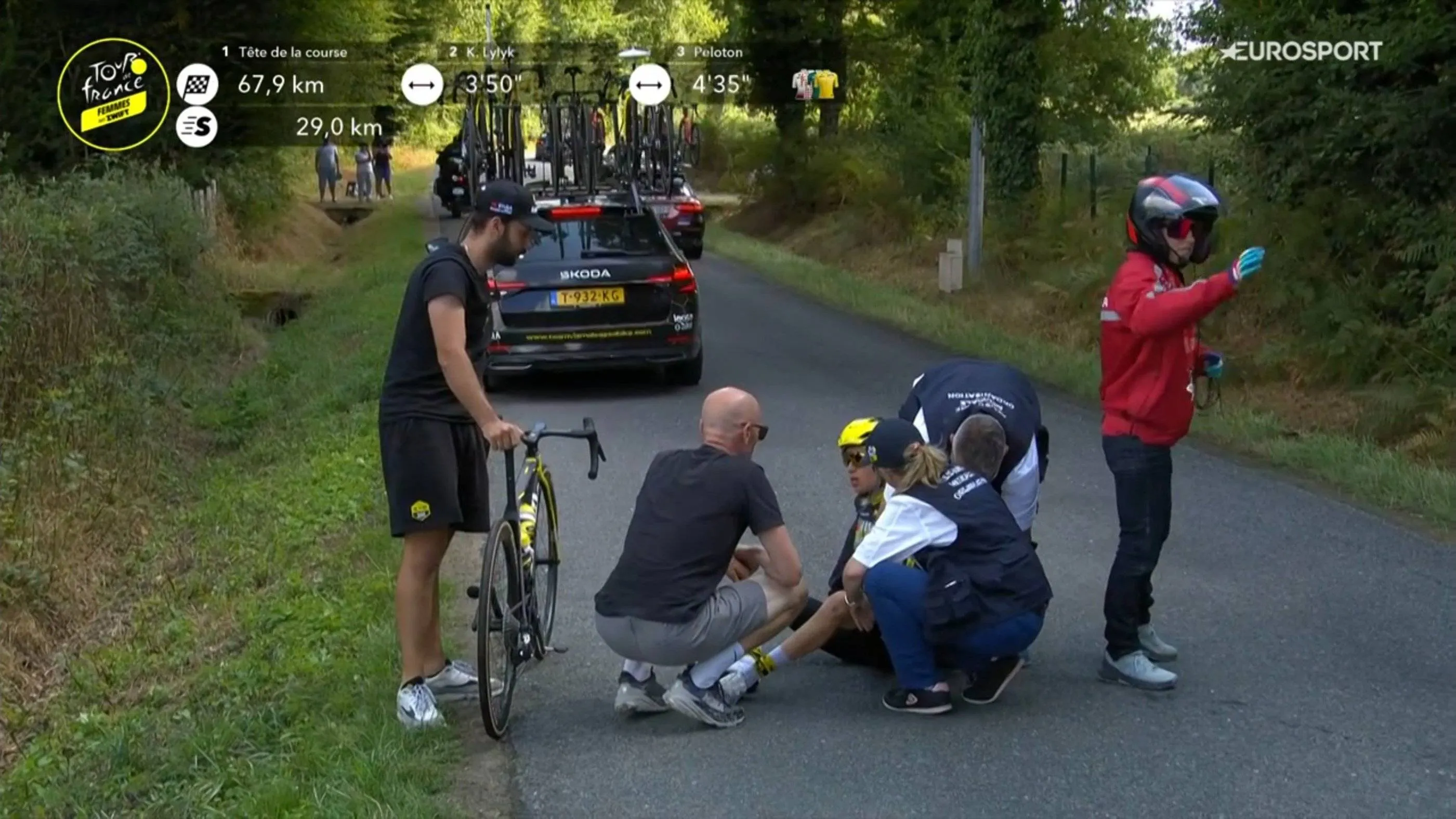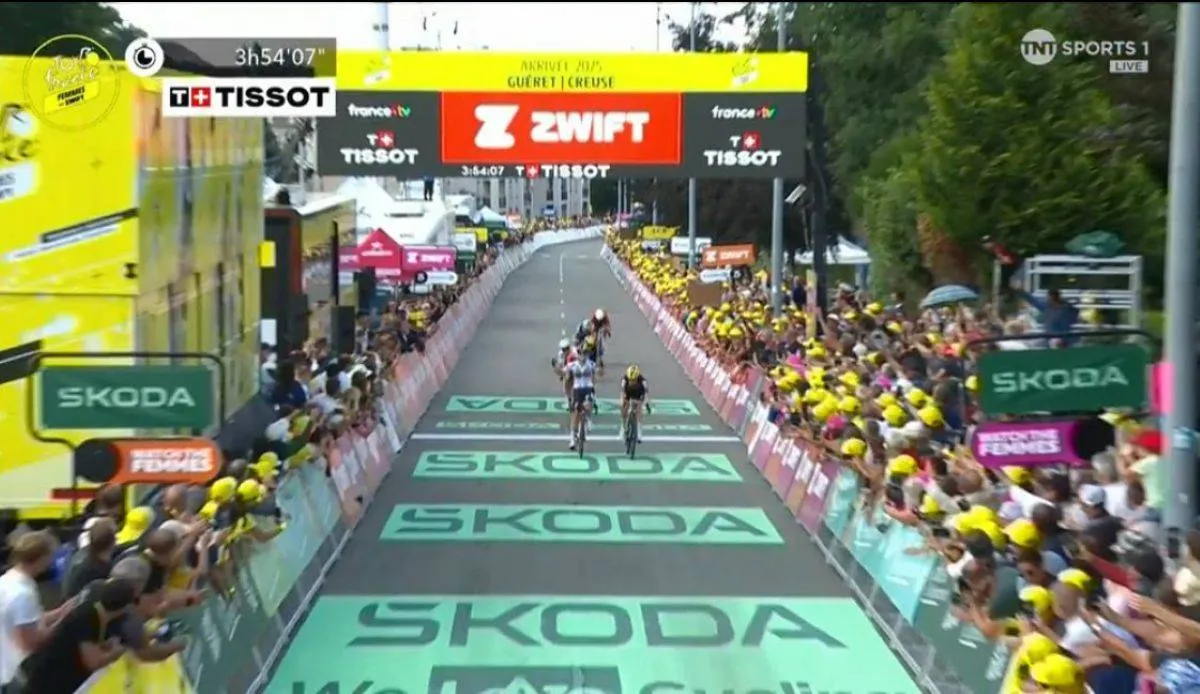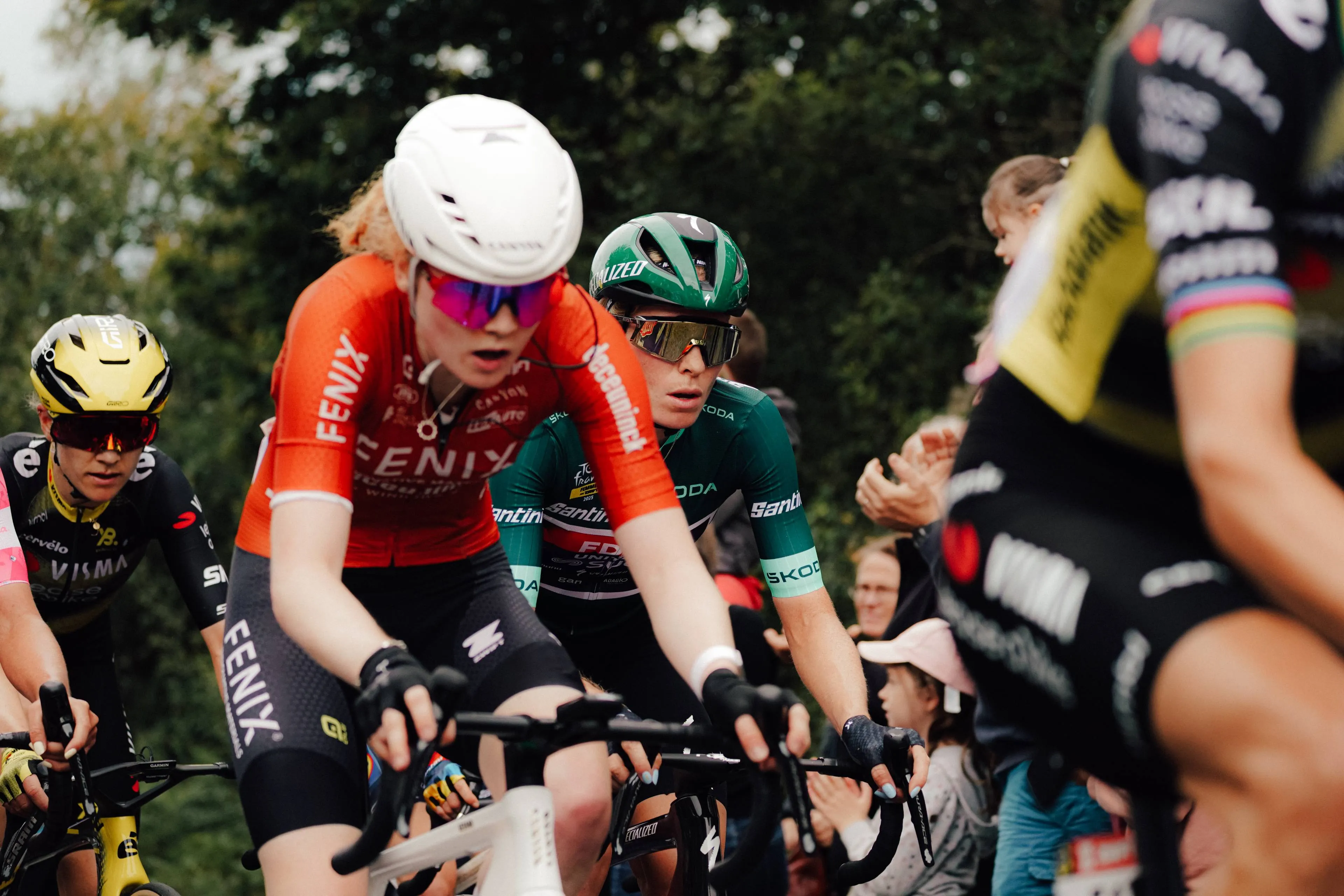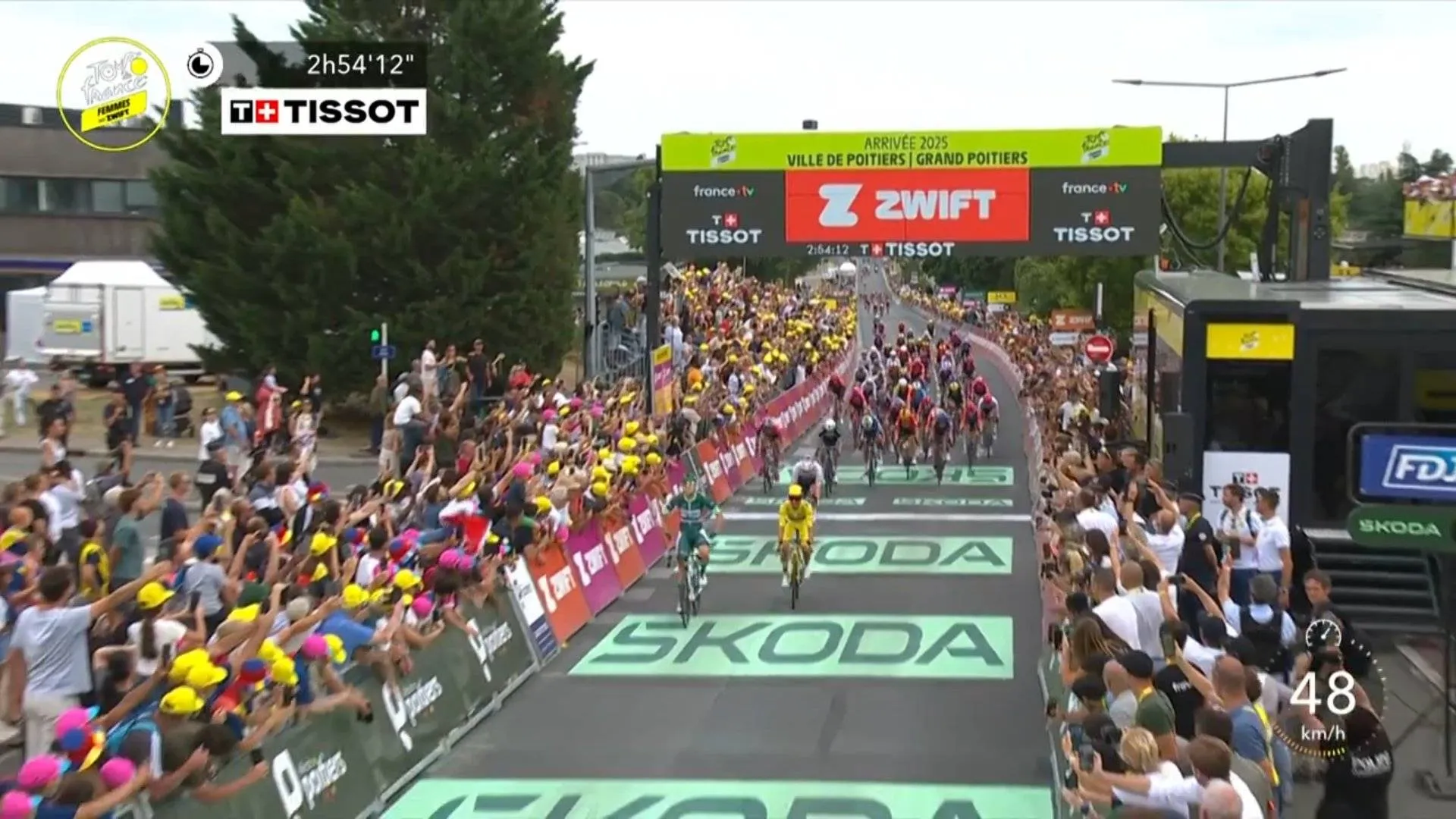Marianne Vos
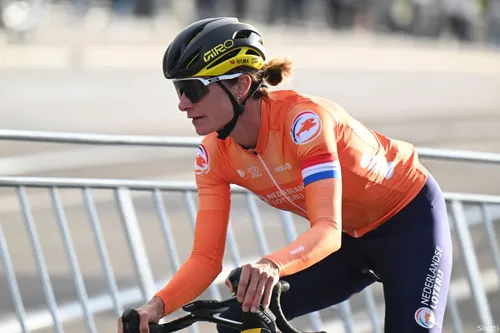
Vos dominates cyclo-cross for years
Marianne Vos was born on May 13, 1987, in ’s-Hertogenbosch, North Brabant in the Netherlands. Excelling in multiple disciplines, including cyclo-cross and road cycling, Vos captured her first elite world title in cyclo-cross. At nineteen, she sprinted to her first World Championship victory against German rider Hanka Kupfernagel. Up until 2014, she added six more rainbow jerseys in cyclo-cross to her record. Additionally, Vos claimed the Dutch national title six times and, in 2017, won the European Championship for the first time.
Vos ventures into track cycling
Vos also briefly ventured into track cycling, aiming for an Olympic gold medal in the points race at the 2008 Beijing Olympics. Her journey began at the World Track Championships in Manchester, where she immediately won the points race, boosting her Olympic ambitions. At the Olympics, she dominated, gaining a lap on her competitors to secure the gold medal with ease.
Vos racks up road victories
From a young age, Vos balanced cyclo-cross and road cycling, achieving significant success in both. In 2006, the same year she won her first Cyclo-cross World Championship, she also took the road World Championship title in Salzburg. Out of a lead group of fifteen women, she displayed her powerful sprint and won. Thanks to her sprinting prowess, she continued to win numerous races in both stage races and one-day classics in the years that followed. The Flèche Wallonne was especially suited to her style. Her explosiveness allowed her to wait until the final ascent of the Mur de Huy to drop her rivals. She has won this iconic race five times.
While Vos excelled on hilly terrains, the mountains initially posed a challenge. However, she was determined to improve so she could win the women’s premier stage race, the Giro Rosa. In 2011, she achieved this goal, winning five stages in that edition. If not winning in the sprint, she would do so with an attack, even proving unbeatable in the mountains. Only once did she allow her main rival, Emma Pooley, to go ahead, though she lost no time. With a lead of over three minutes, she added the biggest women’s stage race to her growing list of accomplishments.
In 2012, Vos repeated her performance in almost the same way. Again, she won five stages, faced Pooley as her main rival, and claimed the overall title with a margin of over three minutes. 2012 was also the year of the London Olympics. Although she had previously won a gold medal on the track in Beijing, she finished sixth on the road, falling short of expectations. The pressure was high in London. Despite a relatively easy course, Vos managed to break away in the final with home favorite Elizabeth Deignan. The two went head-to-head in a sprint, where Vos showcased her strength yet again. The Dutch superstar capped off the year with a world title on home soil.
Many successes take their toll, but Vos bounces back
With her Olympic road title, Vos had nearly won everything there was to win. However, years of success across various disciplines took their toll, resulting in significant fatigue. She continued to win many major races in 2013 and 2014, including the World Championship in Florence and the 2014 Giro Rosa. But these would be her last big achievements for a while, as Vos was diagnosed with overtraining syndrome after 2014 — a hard diagnosis for someone used to relentless competition. Full rest was prescribed.
In 2015, Vos mostly stayed off her bike. She rode two small Dutch races, but they didn’t give her the right feeling to continue. 2016 was better, as she claimed victories in smaller races, though the top level remained out of reach. Vos steadily made progress, eventually winning the European title in Herning, Denmark. In the bunch sprint, she defeated her usual sprint rival, Giorgia Bronzini. Vos regained her winning rhythm even more in 2018 and 2019, claiming victories in Women’s WorldTour races like the Ladies Tour of Norway in both years, the Trofeo Alfredo Binda and three stages in the 2019 Giro Rosa. From there on, her career was on the up again.
IDL-productions

‘I was also close to a burnout’: Vingegaard — like Plugge, van Aert and Kelderman — responds to Yates announcement
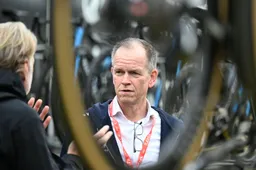
Shooting range, spot on the budget ranking and major innovation on the horizon: Richard Plugge ahead of Visma | Lease a Bike’s 2026 season
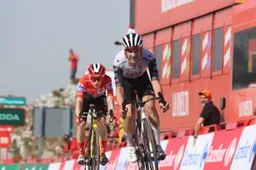
João Almeida prepares for Giro clash with Vingegaard: 'Everyone is beatable, except maybe Pogacar'
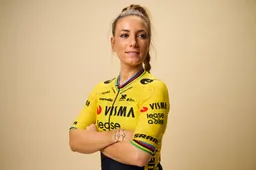
Pauline Ferrand-Prévot changed number: 'Must be able to live my own life'
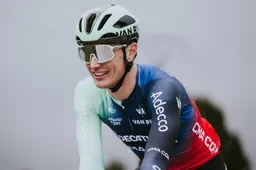
False start 2026 for Olav Kooij at new team Decathlon CMA-CGM
Latest Cycling News
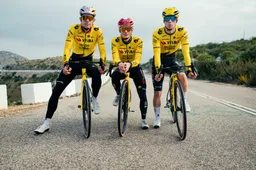
Wout van Aert still ambitious for spring Classics alongside Visma | Lease a Bike's rising star

‘I was also close to a burnout’: Vingegaard — like Plugge, van Aert and Kelderman — responds to Yates announcement

Shooting range, spot on the budget ranking and major innovation on the horizon: Richard Plugge ahead of Visma | Lease a Bike’s 2026 season

João Almeida prepares for Giro clash with Vingegaard: 'Everyone is beatable, except maybe Pogacar'

Pauline Ferrand-Prévot changed number: 'Must be able to live my own life'
Popular Cycling News

Tom Pidcock presents his spring plans: full calendar for Pinarello - Q36.5-leader, from Nieuwsblad to Liège
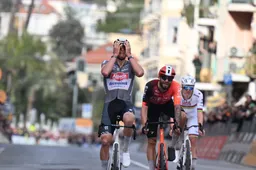
No Boonen or Cancellara, but Van der Poel is the king of classics, says Kristoff: 'He could have beaten them all'
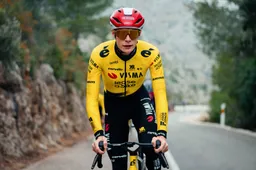
Is Vingegaard conceding to the dominance of Pogacar by riding the Giro? 'That's my takeaway,' says Bruyneel
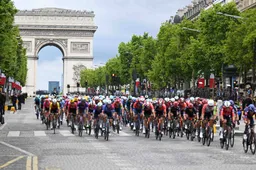
Tour de France and Tour de France Femmes 2027's UK start unveiled, with fitting tribute to Geraint Thomas
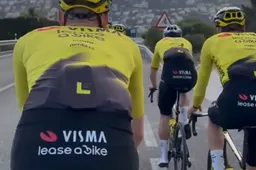
What broken ankle? Van Aert already back on the bike, with a 6(!) hour training session with teammates in Spain
Latest Comments
- Those events are mental rest for him. Fun, without expectations. *Sagan lost his abilities because he gained weight and got lazy. Pogi will likely retire before that has a chance at happening.Veganpotter14-12-2025
- Ah, the consequences of riding for Israel.Veganpotter11-12-2025
- Pidcock could follow everyone but Pogi while finishing 3rd. No second place rider this season😃Veganpotter16-11-2025
- Now the Palestinian protestors can stop their whining. Trump came to the rescue. So they can now STFU and go back to waving the rainbow flags.raufus15-10-2025
- Cracked the code lol. If it was that easy to 'crack the code' jonny Vegas would be charging up the Kwaremont giving Pog a dose of his medicine. Evenepoel can't match pog on a climb and neither can mvdp. Anything with a half difficult climb and Pog smashes the field. Even on flat(ish)parcours like Roubaix it came down to a mistake and crash by pog to definitively crown mvdp. MSR is the only one that Pog probably won't win.kevpt10-10-2025
- We've seen this movie before. I think Pogacar is doping.DeadBlow10-10-2025
- 👍Bea08-10-2025
- 👌🏻Bea08-10-2025
- What the data doesn't show is how much of an effect drafting had for evenepoel. Pogacar went with del toro at 100km whilst Evenepoel was still in the bunch. Despite the bike changes he still had a lot of assistance getting back to the bunch. Pogacar then rode 60km solo whilst evenepoel rode with Healy/Skjelmose until going solo in thd last 10-15km. Thats ~20% less power / energy requirements for 45-50km. Apples and oranges...kevpt30-09-2025
- 👏👏Bea24-09-2025
Loading

